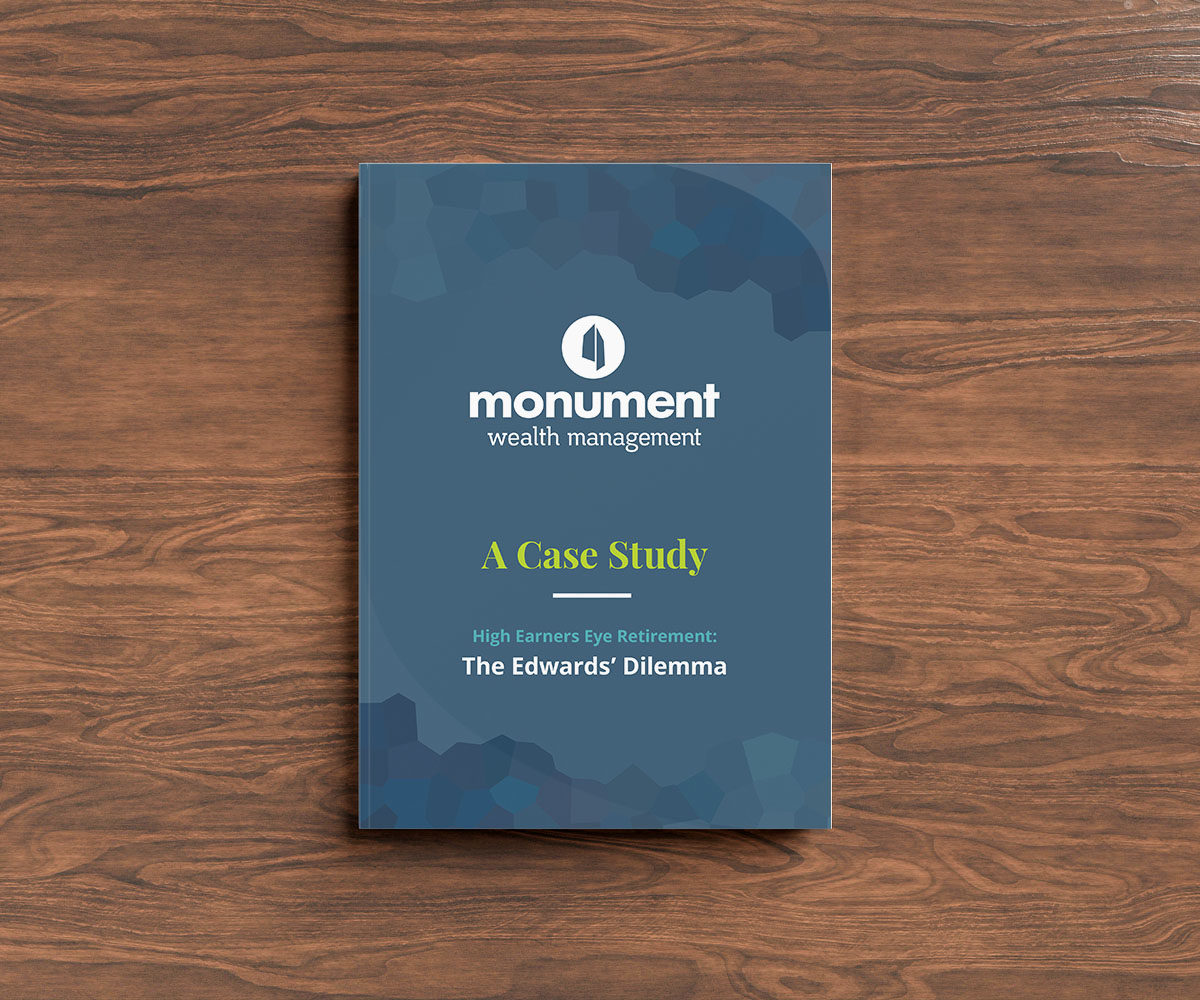Monument Wealth Management Articles
Preparing a Will Checklist: 3 Items You Can’t Forget

Share on your favorite platform, or by email
So, you STILL haven’t completed your Will? It’s not nearly as intimidating as you might think. Simply, it’s a legal document that goes into effect upon your death and tells your heirs where you’d like your assets to go and who Will take care of your children (if you have any).
A simple way to start is by preparing a Will checklist. And while there is plenty of nuance and consideration required, here are the top 3 things you should keep in mind:
1. Have kids? Talk to your people.
No matter what (or where) your assets are, it’s important to talk to those set to inherit them so they’re properly prepared, especially if you have children who are minors.
Typically, if there’s a surviving parent, they’ll automatically be awarded custody of your children. If that parent is otherwise unfit to take care of the kids or if there is no surviving parent, then the guardian will be determined by your Will.
But you can’t forget the most important part: telling the guardian you’d like them to have custody. This isn’t a movie where tragedy leads to a heartwarming story about a reckless single person suddenly changing their irresponsible ways by bonding with your children. Assigning a guardian is serious business that should be discussed thoroughly. Not assigning a guardian, however, could have even more serious consequences.
If you leave your family hanging on matters of custody, the decision of guardianship falls to the courts. Generally, this responsibility goes to the individuals most closely related to the child–starting with grandparents, and cascading down to uncles, aunts, and cousins. Do you really want your great, great aunt Gertrude to have custody of your children?
For true peace of mind, be sure to spell out the details beforehand. Your child’s future shouldn’t fall victim to an endless series of litigation and Gertrude’s stale cookies.
2. Look at the big picture.
When it comes to determining the function and form of your Will, it’s really helpful to have everyone involved focused on the big picture as it could have ripple effects throughout many areas of people’s lives, from family to financials. You’ll need clear communication on both ends, not only expressing what’s important to you but truly understanding what’s important to your beneficiaries.
It’s important to ask questions like:
- Who do you want to have control of your assets long-term?
- Have you provisioned enough to take care of your family’s needs?
- Have you appointed the right guardians?
Once you’ve answered these big picture questions, the finer details should be much easier to manage.
Create an asset map
While it’s important to discern the big picture, your estate likely has many moving parts. It can be difficult to understand where various assets, liabilities, and cash flows fit into an overarching strategy for passing on your wealth. For this reason, we recommend our clients create a detailed breakdown of their entire net worth, using a wealth visualization tool known as a Monument Asset Map.
This map can help you quickly uncover gaps in your Will, allowing you to better align the passing of your possessions with the needs of each heir. Partners like Monument Wealth Management can help you create an asset map, providing the context for a personalized discussion about the future of your finances, throughout life and beyond.
In addition to giving you a better sense of opportunities and limitations within your estate, this process Will also help you feel more organized when it’s time for inheritance-focused conversations with your lawyer.
3. Make iterations.
Remember, you can always update your Will. After all, children grow up, businesses sell, and your wishes may adapt. We’re all constantly iterating and growing as people, so it’s only natural that your Will should be transformative, too. There are, of course, standard processes to follow that vary state-by-state. It’s a best practice to have witnesses, and if possible, your attorney, present for any important revisions. In most cases, if you’re making substantive changes, it’s even better to invalidate the previous Will altogether. You obviously don’t want your heirs to honor the conditions in previous versions, so be sure to explicitly state that you’re revoking any past Wills, and destroy any written copies if possible.
For smaller, singular changes to your Will, writing a codicil (an addition that modifies the existing Will) may also be an appropriate option. Let’s say the family member appointed to be the guardian of your children has unexpectedly passed. As a deceased family member obviously can’t take care of your kids, a short written amendment can be a faster, more cost-effective alternative compared to completely rewriting your Will altogether. You can easily draft up a statement that overrules particular portions of your original document, and still, reaffirms the remainder of the Will’s contents. While replacing the entire Will may be a wise move, in the long run, a codicil can help you cover all your bases for the near future. Again, it is important to seek the advice and services of a trust and estate attorney when considering changes to your Will, including codicils.
Just do it.
If you die without a Will, the distribution of your assets will be decided by courts and state law, leaving your family to deal with an onslaught of paperwork and proceedings. It’s best to prepare a Will and have your affairs in order well beforehand. In this context, it’s essential to have a Collective Mastermind like Monument, who can empower you and grant you the confidence you need to get started on the first (of many!) iterations.
And preparing a Will checklist is just the beginning. Having a partner who understands the Will process along with all of the familial and emotional ties that are coupled with it can help ease your journey every step of the way. From collaborative Private Wealth Design services that involve you every step of the way to a team of no-nonsense, trustworthy financial mavericks, Monument stands apart in every sense.
In a sea of sameness, Monument Wealth Management can offer a unique perspective on wealth planning—we’re not afraid to swim against the current. If you’re ready to take meaningful action on your Will planning and overall wealth picture, Monument is ready to be your guide.

It’s time to find clarity around your finances and remove the anxiety of the unknown.
Read our case study, “High Earners Eye Retirement,” to see how we helped one of our clients with their wealth planning.
Ready for straightforward, unfiltered opinion and tailored advice for YOUR
questions, not everyone else’s?
IMPORTANT DISCLOSURE INFORMATION
Please remember that past performance is no guarantee of future results. Different types of investments involve varying degrees of risk, and there can be no assurance that the future performance of any specific investment, investment strategy, or product (including the investments and/or investment strategies recommended or undertaken by Monument Capital Management, LLC [“Monument”]), or any non-investment related content, made reference to directly or indirectly in this blog will be profitable, equal any corresponding indicated historical performance level(s), be suitable for your portfolio or individual situation, or prove successful. Due to various factors, including changing market conditions and/or applicable laws, the content may no longer be reflective of current opinions or positions. Moreover, you should not assume that any discussion or information contained in this blog serves as the receipt of, or as a substitute for, personalized investment advice from Monument. To the extent that a reader has any questions regarding the applicability of any specific issue discussed above to his/her individual situation, he/she is encouraged to consult with the professional advisor of his/her choosing. No amount of prior experience or success should be construed that a certain level of results or satisfaction will be achieved if Monument is engaged, or continues to be engaged, to provide investment advisory services. Monument is neither a law firm nor a certified public accounting firm and no portion of the blog content should be construed as legal or accounting advice.
A copy of Monument’s current written disclosure Brochure discussing our advisory services and fees is available for review upon request or at www.monumentwealthmanagement.com/disclosures. Please Note: Monument does not make any representations or warranties as to the accuracy, timeliness, suitability, completeness, or relevance of any information prepared by any unaffiliated third party, whether linked to Monument’s website or blog or incorporated herein, and takes no responsibility for any such content. All such information is provided solely for convenience purposes only and all users thereof should be guided accordingly.
Historical performance results for investment indices, benchmarks, and/or categories have been provided for general informational/comparison purposes only, and generally do not reflect the deduction of transaction and/or custodial charges, the deduction of an investment management fee, nor the impact of taxes, the incurrence of which would have the effect of decreasing historical performance results. It should not be assumed that your Monument account holdings correspond directly to any comparative indices or categories. Please Also Note: (1) performance results do not reflect the impact of taxes; (2) comparative benchmarks/indices may be more or less volatile than your Monument accounts; and, (3) a description of each comparative benchmark/index is available upon request.
Please Remember: If you are a Monument client, please contact Monument, in writing, if there are any changes in your personal/financial situation or investment objectives for the purpose of reviewing/evaluating/revising our previous recommendations and/or services, or if you would like to impose, add, or to modify any reasonable restrictions to our investment advisory services. Unless, and until, you notify us, in writing, to the contrary, we shall continue to provide services as we do currently. Please Also Remember to advise us if you have not been receiving account statements (at least quarterly) from the account custodian.